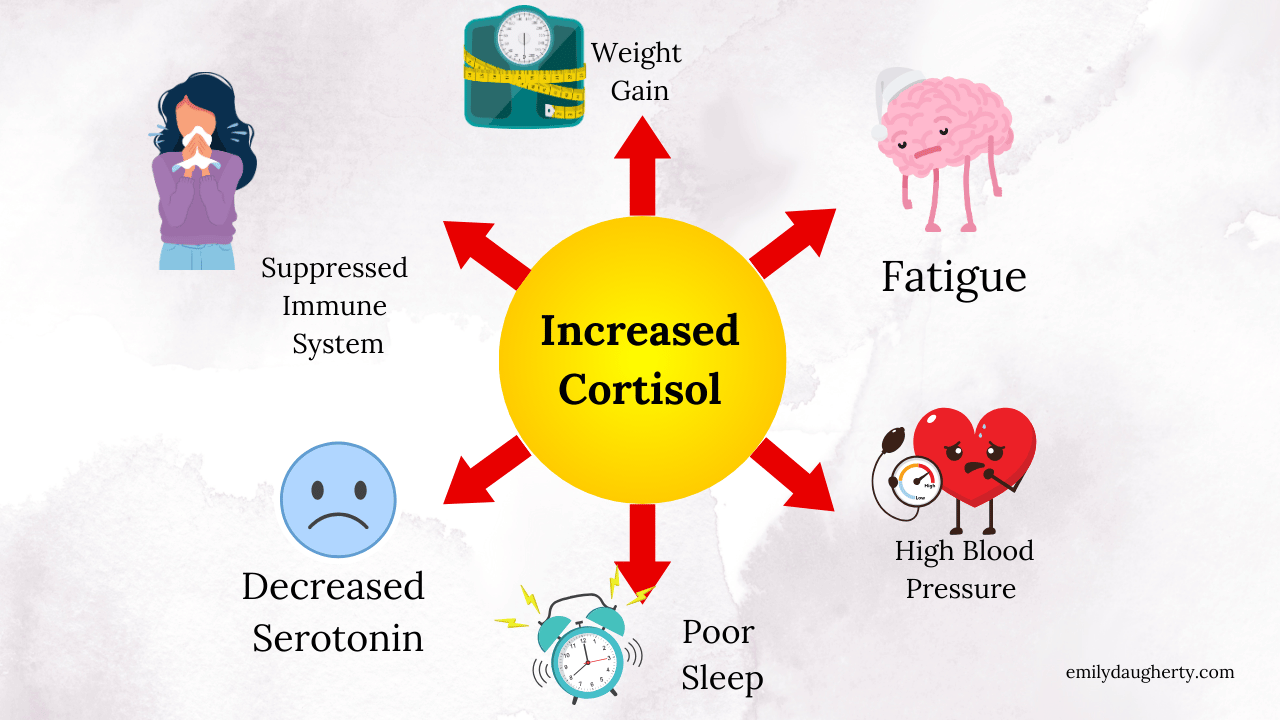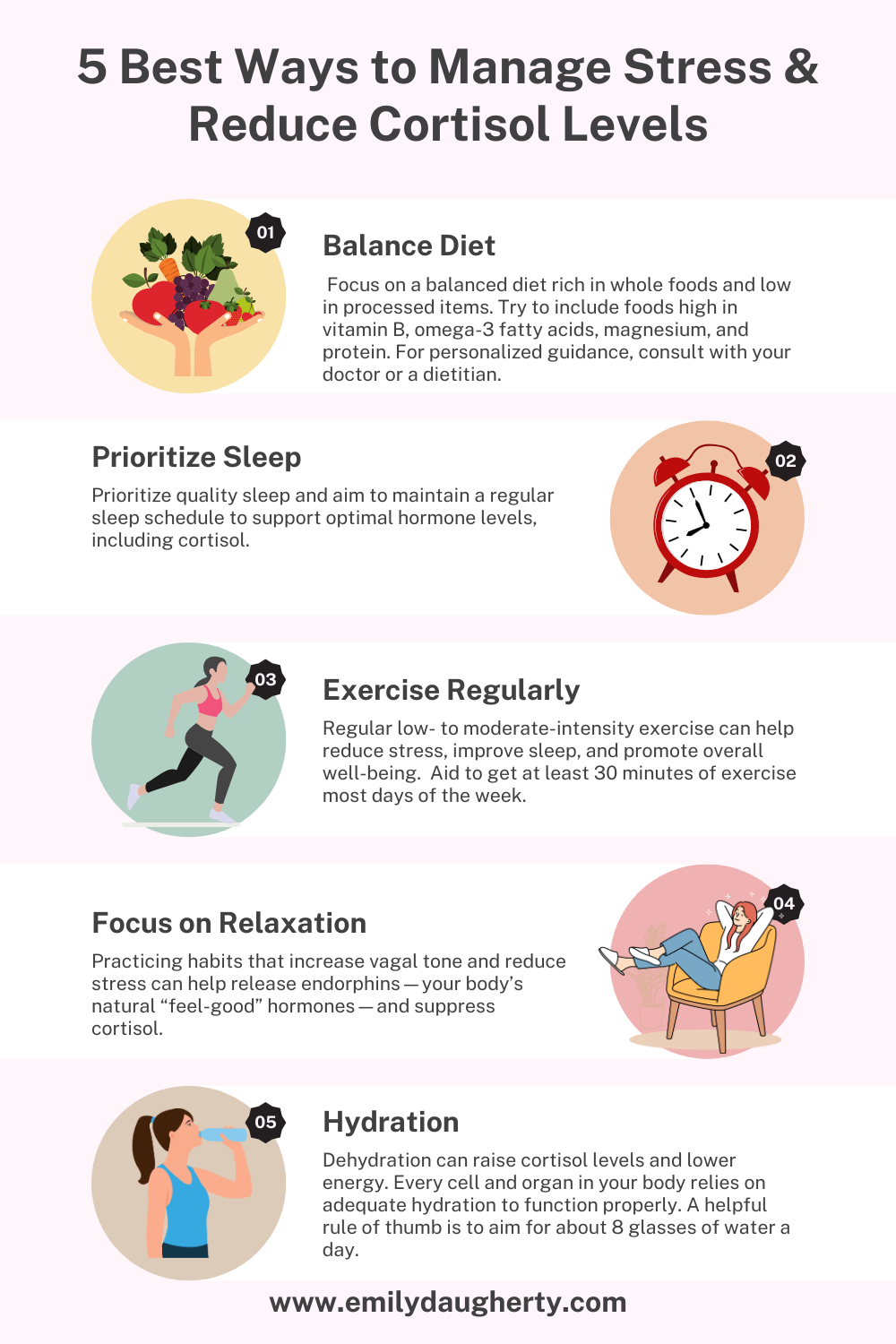Natural Ways to Reduce Stress and Balance Cortisol Levels: Strengthen Your Vagus Nerve for Better Health
May 10, 2025
Natural Ways to Reduce Stress and Balance Cortisol Levels: Strengthen Your Vagus Nerve for Better Health
Discover effective ways to manage stress and lower cortisol levels naturally. Learn how deep breathing, exercise, mindful movement, and vagus nerve toning can help reduce stress, improve sleep, and boost overall well-being.
This article provides essential tips on balancing cortisol, enhancing relaxation, and promoting heart health. Read more to unlock the power of stress management and optimize your health with simple lifestyle changes.
Cortisol and the Fight or Flight Response
When we encounter stress, our body’s stress response system activates the sympathetic nervous system, triggering a chain reaction. Cortisol, often called the "fight or flight" hormone, is released by the adrenal glands and plays a crucial role in preparing us to respond to perceived threats, whether it’s meeting a work deadline or facing a more immediate danger. This hormone elevates our heart rate and blood pressure, providing us with the energy needed to accomplish tasks or return to safety.
However, under chronic stress, our bodies can struggle to differentiate between real and perceived threats. This leads to an overproduction of cortisol, which, over time, can have a significant negative impact on our health.

Symptoms of High Cortisol Levels
- Irritability and increased anxiety
- High blood pressure and blood sugar
- Fatigue
- Headaches
- Disrupted sleep
- Weight gain, particularly around the face and midsection
- Menstrual irregularities and fertility issues
- Musculoskeletal weakness or pain
- Increased risk of infection
- Decreased libido
- Lower serotonin levels (low serotonin is linked to depression, sleep disturbances, digestive issues, and reduced self-healing ability)

How To Manage Stress and Reduce Cortisol Levels
Managing stress and reducing cortisol can greatly improve overall health and well-being. Here are some effective ways to achieve this:
- Diet: Focus on a balanced diet rich in whole foods and low in processed items. Try to include foods high in vitamin B, omega-3 fatty acids, magnesium, and protein. Consult with your doctor or a dietitian for personalized guidance.
- Sleep: Prioritize quality sleep and maintain a regular sleep schedule to support optimal hormone levels, including cortisol.
- Exercise: Regular low- to moderate-intensity exercise can help reduce stress, improve sleep, and promote overall well-being.
- Relaxation Tools: Practicing habits that increase vagal tone (see below) and reduce stress can help release endorphins—your body’s natural “feel-good” hormones—and suppress cortisol.
- Hydration: Dehydration can raise cortisol levels and lower energy. Aim to drink 15.5 cups (3.7 liters) of fluids per day for men and 11.5 cups (2.7 liters) for women. Every cell and organ in your body relies on adequate hydration to function properly. A helpful rule of thumb is to aim for about 8 glasses of water a day
“Relaxation is the antidote to stress.” -Heidi Sherwin
Why Tone the Vagus Nerve?
The vagus nerve, or 10th cranial nerve, is the primary communication pathway of the "rest and digest" system, also known as the parasympathetic nervous system (PSNS). This nerve is the second longest in the body, extending from the brain down to the large intestine, and connects to major organs, including the brain, lungs, heart, liver, and digestive system.
Toning the vagus nerve supports overall health by helping to lower heart rate, increase oxygenation throughout the body, reduce stress, and promote balance across bodily systems. By enhancing vagal tone, we can positively impact both mental and physical well-being.

5 Ways to Balance and Tone Your Vagus Nerve
- Practice Deep Breathing: Deep breathing exercises, often used in yoga and meditation, can help slow your heart rate and reduce cortisol levels. For the best results, try to make your exhalations slightly longer than your inhalations.
- Exercise Regularly: Physical activity challenges your body to adapt to healthy stress by raising your heart rate and respiratory rate. Exercise boosts cognition, releases feel-good hormones, and supports vagal tone.
- Practice Mindful Movement: Activities like yoga, Tai Chi, and Qi Gong incorporate slow, deliberate movements, meditation, and breathing exercises to connect mind and body. Specific movements, such as forward folds and twists, naturally compress the vagus nerve, enhancing its tone.
- Listen to or Create Music: The vagus nerve connects to the vocal cords and passes through the inner ear. Singing, humming, chanting, or listening to soothing music can stimulate the vagus nerve through calming sounds and vibrations.
- Try Cold Water Immersion: Cold exposure can slow your heart rate and increase blood flow to the brain, promoting relaxation. You don’t need to jump into a frozen lake—try a cold shower; drink a tall glass of cold water; or place an ice pack on the back of your neck or face for similar benefits.
Stress has a significant impact on how we age and adapt to our environment. However, by developing tools to increase resilience to stress, you can positively impact your overall well-being.
Stay connected with news and updates!
Want more stories like this, along with practical health tips and inspiration for women 50+?
Subscribe to my weekly wellness newsletter and never miss an update!
We hate SPAM. We will never sell your information, for any reason.


